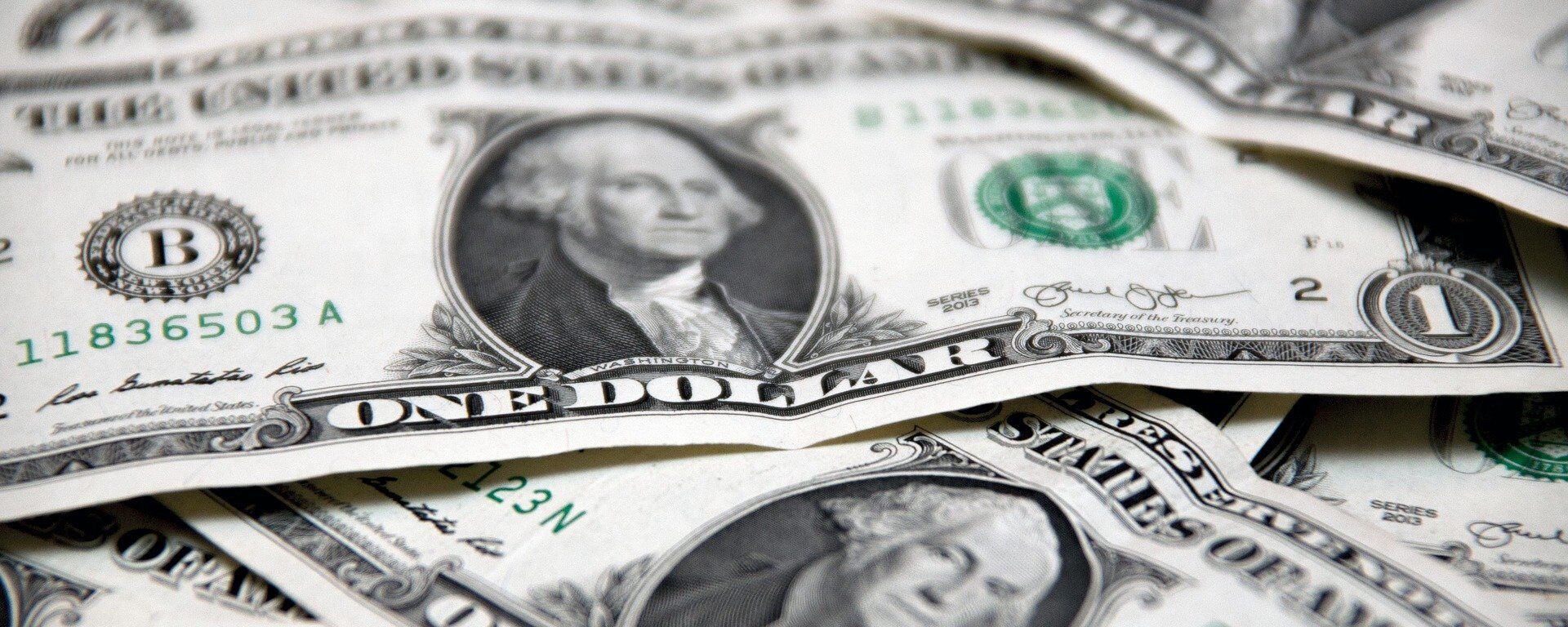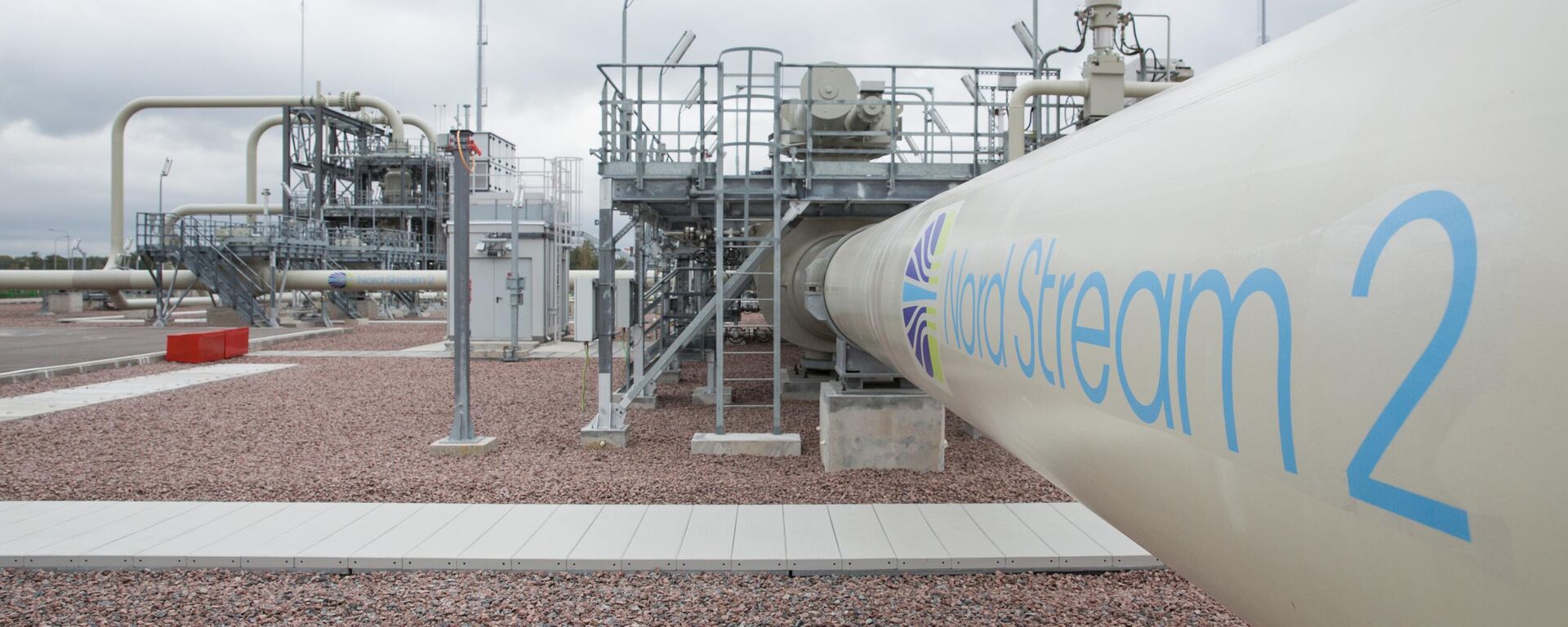https://sputnikglobe.com/20230410/new-poles-are-growing-in-multipolar-world-system-ex-austrian-fm-kneissl-1109293225.html
'New Poles are Growing' in Multipolar World System: Ex-Austrian FM Kneissl
'New Poles are Growing' in Multipolar World System: Ex-Austrian FM Kneissl
Sputnik International
As emerging superpowers, such as China, Turkey, Saudi Arabia, India and Russia, are forging new political and economic alliances, "rules-based order" promoted by the US and the EU is harming their own economies
2023-04-10T08:00+0000
2023-04-10T08:00+0000
2023-04-12T17:05+0000
karin kneissl
russia
european union (eu)
https://cdn1.img.sputnikglobe.com/img/07e7/04/0a/1109310189_64:0:1280:684_1920x0_80_0_0_ff0dc0f488a15ee99826b44343f07e98.jpg
Multipolar West Asia, Africa, Latin AmericaRussian Foreign Minister Sergei Lavrov visited Ankara on Friday, with part of his agenda dedicated to Syria-Turkiye reconciliation. According to Karin Kneissl, Moscow and Tehran have played important roles in the mediating process, which raised a few eyebrows in Washington.She underlined Moscow’s role in the Syria-Turkiye talks and pointed to the fact that in its recent bulletin, the White House expressed concern over "being sidelined, bysided, blind-sided, frustrated" in the process, with the "Assad must go" mantra losing its effectiveness on the NATO member state Turkiye:Austria's former top diplomat stressed the growing importance of the Middle East in the newly-forming multipolar world architecture, describing the nuances in terminology, which may help in understanding the changes:When asked which nations besides China, Russia and Saudi Arabia are forming the new multipolar world, Kneissl mentioned India and Latin American nations such as Brazil and Argentina, while also praising the role of some Rainbow Continent nations, such as South Africa and others:On Emerging Powers and the Energy MarketWhen talking about the collective leverage of emerging powers in the energy markets, Kneissl elaborated on the recent decision of OPEC+ to cut oil production – something which, in her opinion, may influence not only the upcoming presidential elections in the United States but also indirectly trigger a chain reaction in the EU.Kneissl likewise explained that the US has already used up the oil from its Strategic Petroleum Reserve, and OPEC+'s decision may push the gas prices in America through the roof, prompting the Biden administration to cut oil and gas exports:According to Kneissl, the possible ban on American LNG supplies to Europe, which were partly filling the market gaps caused by the lack of Russian gas supplies to the Old World, may push energy prices in the EU, which have already soared, even higher:She has also pointed at the EU leaders' recent attempts to seek alternatives to the affordable Russian gas in Norway, Canada and Africa, with German Chancelor Olaf Scholz and French President Emmanuel Macron paying visits to gas-producing countries like Algeria, - only to find that there are no easy and quick solutions:The Hypocrisy of 'Rules-Based Order' RhetoricWhen talking about the West’s foreign policy style, Kneissl argued that it harms the EU’s economic interests globally. She gave an example of Germany’s automotive industry, which is losing ground in Russia after abandoning production and sales in the country. It similarly failed to keep its share of the Middle Eastern market, where it has largely been replaced by the Asian automakers over the past 20 years, and now, due to actions of European leaders, its positions in Asia are also in danger.In her Sputnik interview, Kneissl also spoke about the emerging powers' role in the mediation of global crises, commented on Austria and Switzerland taking sides in the Ukrainian conflict, and thus abandoning their neutrality, and also shared her opinion on the need for "new faces" in Western politics.Kneissl was minister of European and international affairs of Austria from 2017 to 2019. She has been criticized in the EU for her ties with Russia and eventually left Austria and later France because of death threats.
https://sputnikglobe.com/20230201/credit-suisse-us-dollar-hegemony-may-be-replaced-by-more-multipolar-monetary-system-1106894583.html
https://sputnikglobe.com/20230405/seymour-hersh-cias-nord-stream-counter-op-story-intentionally-absurd-to-reinforce-truth-1109166466.html
russia
Sputnik International
feedback@sputniknews.com
+74956456601
MIA „Rossiya Segodnya“
2023
Sputnik International
feedback@sputniknews.com
+74956456601
MIA „Rossiya Segodnya“
News
en_EN
Sputnik International
feedback@sputniknews.com
+74956456601
MIA „Rossiya Segodnya“
Karin Kneissl Interview
Sputnik International
Karin Kneissl Interview
2023-04-10T08:00+0000
true
PT34M29S
Sputnik International
feedback@sputniknews.com
+74956456601
MIA „Rossiya Segodnya“
karin kneissl interview, multi-polar world, eu sanctions, emerging superpowers, turkey-syria talks, turkiye-syria talks, saudi-iranian talks
karin kneissl interview, multi-polar world, eu sanctions, emerging superpowers, turkey-syria talks, turkiye-syria talks, saudi-iranian talks
'New Poles are Growing' in Multipolar World System: Ex-Austrian FM Kneissl
08:00 GMT 10.04.2023 (Updated: 17:05 GMT 12.04.2023) Exclusive
As emerging powers such as China, Turkiye, Saudi Arabia, India and Russia forge new political and economic alliances, the "rules-based order" promoted by the US and the EU is harming their own economies, said energy analyst, Middle East expert and former Austrian top diplomat Karin Kneissl in an exclusive Sputnik Interview.
Multipolar West Asia, Africa, Latin America
Russian Foreign Minister
Sergei Lavrov visited Ankara on Friday, with part of his agenda dedicated to Syria-Turkiye reconciliation. According to Karin Kneissl, Moscow and Tehran have played important roles in the mediating process, which raised a few eyebrows in Washington.
She underlined Moscow’s role in the
Syria-Turkiye talks and pointed to the fact that in its recent bulletin, the White House expressed concern over "being sidelined, bysided, blind-sided, frustrated" in the process, with the "Assad must go" mantra losing its effectiveness on the NATO member state Turkiye:
"I think that with a good portion of pragmatism [Ankara-Damascus rapprochement is possible], and that is there, also thanks to an equidistant Russian mediation that keeps the natural instrument of equidistance, not being too close to one party, so this helps to hopefully consolidate" – said Kneissl.
Austria's former top diplomat stressed the growing importance of the Middle East in the newly-forming multipolar world architecture, describing the nuances in terminology, which may help in understanding the changes:
"In this multipolar world, there are many, many poles growing from different sides. And the Middle East as we traditionally have been calling this region - seen from a London perspective, it's the Middle East, but in most continental languages it's the Near East, also in Russian. But the term West Asia, which is used in the UN terminology for that region, is maybe the more precise one because it also complements the idea of Eurasia and the region from Turkiye going down to Jordan and then to the Persian Gulf, the Caspian, all that as part of West Asia."

1 February 2023, 18:08 GMT
When asked which nations besides China, Russia and Saudi Arabia are forming the new multipolar world, Kneissl mentioned India and Latin American nations such as Brazil and Argentina, while also praising the role of some Rainbow Continent nations, such as South Africa and others:
"Africa has been achieving a very interesting regional cooperation, whether it's the East Lake region, West Africa does that," said Kneissl. "That's true regionalism working together on the African continent, which goes beyond or solidifies what the African Unity Organization is trying to do."
On Emerging Powers and the Energy Market
When talking about the collective leverage of emerging powers in the energy markets, Kneissl elaborated on the recent decision of OPEC+ to cut oil production – something which, in her opinion, may influence not only the upcoming presidential elections in the United States but also indirectly trigger a chain reaction in the EU.
Kneissl likewise explained that the US has already used up the oil from its Strategic Petroleum Reserve, and OPEC+'s decision may push the gas prices in America through the roof, prompting the Biden administration to cut oil and gas exports:
"So when we take up the thought of oil prices playing their role in any kind of electoral campaign, there is some thinking, and I share that, that the Biden administration might do an export ban of its domestic production, which it is also exporting."
According to Kneissl, the possible
ban on American LNG supplies to Europe, which were partly filling the market gaps caused by the lack of Russian gas supplies to the Old World, may push energy prices in the EU, which have already soared, even higher:
"And that's where it becomes more problematic because when you buy LNG 40% more expensive than natural gas coming from Russia via Ukraine or NordStream or whatever, you already have a 40% price increase. And this you have to somehow manage in your industrial process," said Kneissl.
She has also pointed at the EU leaders' recent attempts to seek alternatives to the affordable Russian gas in Norway, Canada and Africa, with German Chancelor Olaf Scholz and French President Emmanuel Macron paying visits to
gas-producing countries like Algeria, - only to find that there are no easy and quick solutions:
We see visits, lots of visits to Venezuela, Mozambique, also some West African countries, and then trying to revitalize some Norwegian old gas fields, Dutch gas fields. There was also a very important visit by Chancellor Scholz to Canada with a lot of talk about energy partnership. But most of the voices I read then, also of Canadian origin, they said this was just announcements. It won't work like that.
Karin Kneissl
Former Austrian Foreign Minister
The Hypocrisy of 'Rules-Based Order' Rhetoric
When talking about the West’s foreign policy style, Kneissl argued that it harms the EU’s economic interests globally. She gave an example of
Germany’s automotive industry, which is losing ground in Russia after abandoning production and sales in the country. It similarly failed to keep its share of the Middle Eastern market, where it has largely been replaced by the Asian automakers over the past 20 years, and now, due to actions of European leaders, its positions in Asia are also in danger.
"We saw [European] Commission President Ursula von der Leyen, who's German, lecturing President Xi Jinping on rules-based order and so on," said Kneissl. "Let us not forget that 40% of German cars are sold on the Chinese market. 60% of Volkswagen is sold on the Chinese market. And when you keep on lecturing China anyway the market is breaking apart."
In her
Sputnik interview, Kneissl also spoke about the emerging powers' role in the mediation of global crises, commented on Austria and Switzerland
taking sides in the Ukrainian conflict, and thus abandoning their neutrality, and also shared her opinion on the need for "new faces" in Western politics.
Kneissl was minister of European and international affairs of Austria from 2017 to 2019. She has been criticized in the EU for her ties with Russia and
eventually left Austria and later France because of death threats.


